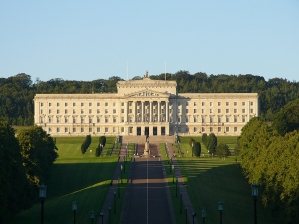
Northern Ireland is facing a deepening crisis in public services, with chronic underfunding affecting health, education and policing—prompting evangelical leaders to call for prayer and action as churches increasingly step in to fill the gaps.
The UK Parliament’s Northern Ireland Affairs Committee has launched a follow-up inquiry into the funding of public services after identifying a shortfall in money needed in areas such as health, schools, police and the criminal justice system. A lack of financial backing in Northern Ireland’s ability to invest in skills, infrastructure and growth in the local economy has stifled public services, according to a committee press release.
“While the current needs-based element of funding means that since the restoration of the Executive, Northern Ireland has received 124% of any increase in funding for England - in part due to comparatively widespread poverty, greater disadvantage and a higher proportion of the people being in receipt of benefits - the committee highlights evidence that such a figure will not be enough to make a significant difference to public services in the short term,” stated the press release.
Committee MPs have highlighted the particular needs of Northern Ireland in comparison to the rest of the U.K. They have also discussed possible effects of the national Autumn Budget upon the region, alongside options for raising revenue as a result of the Northern Ireland Final Fiscal Framework, which creates a structure for financial stability and progression.
In April, MPs called upon the U.K. Government to revisit funding mechanisms for public services in the region “amid warnings of the impact the continuing state of crisis is having on people’s quality of life.” The committee wants the government to calculate Northern Ireland’s “Block Grant baseline", from 2026-2027 onwards, in line with the level of need in the province.
“The crisis afflicting public services in Northern Ireland has gone on for far too long with the crippling effects of underfunding impinging on the day to day lives of people across communities,” said Tonia Antoniazzi MP, Chair of the Northern Ireland Affairs Committee.
The committee described the current funding approach as reactive and insufficient, noting it often arrives too late to address urgent needs—especially in critical sectors such as health care, education, and policing, which one witness referred to as “the three hungry children.”
"The aim must be that public services in Northern Ireland are fully funded according to need, through stable, sustainable and predictable allocations, and our recommendations for the short, medium and long term set out the path to get there.”
The U.K. Government needs to provide “stable and sustainable” multi-year funding —funding support committed for multiple years— with a furthering of fiscal devolution, so the Northern Ireland Executive can plan for public service transformation in the near future, according to the committee. Money earmarked for such transformation, the committee noted, “has been diverted to day-to-day spending.”
Meanwhile, witnesses at an inquiry for the committee have narrated examples of the great strain upon public services in Northern Ireland.
These include long waiting lists for health services, struggles in the primary care sector and a mental health situation deemed “acute.” Areas of concern include a funding shortfall in childcare, housing and skill sectors.
Children with special education needs are not given the funding, the inquiry heard. There is a discrepancy in spending levels for pupils compared to the rest of the U.K. and a “backlog” in the maintenance of schools.
Budget constraints affect policing and justice provision, against the challenging background of dealing with the “legacy of Northern Ireland’s recent past.”
David Smyth, Head of Evangelical Alliance Northern Ireland, told Christian Daily International that churches had been filing in the gaps in the provision of public services.
“As Christians, we are deeply concerned about the delivery of basic public services in Northern Ireland including education and healthcare,” said Smyth.
“The instability of devolved government here over the past 27 years means that longer term strategic decisions and investments did not occur in some crucial areas. Hospital waiting lists are the worst in the UK and many parents waiting for assessment and support for children with SEN [Special Educational Needs] are at breaking point.
“Churches are often helping to pick up the pieces through pastoral support, meeting some practical needs and responding to related issues around poverty and mental health.”
Nine key priorities have been identified by the government, including reducing waiting lists and better support for families with children with SEN, according to Smyth.
“We commended this and are working with others to advocate for better governance for the common good, longer term vision, programmes and investment.”
“Please do pray for churches and Christian charities in Northern Ireland as we serve practically, advocate prophetically and endeavour to be agents of hope in wider civil society,” he added.






